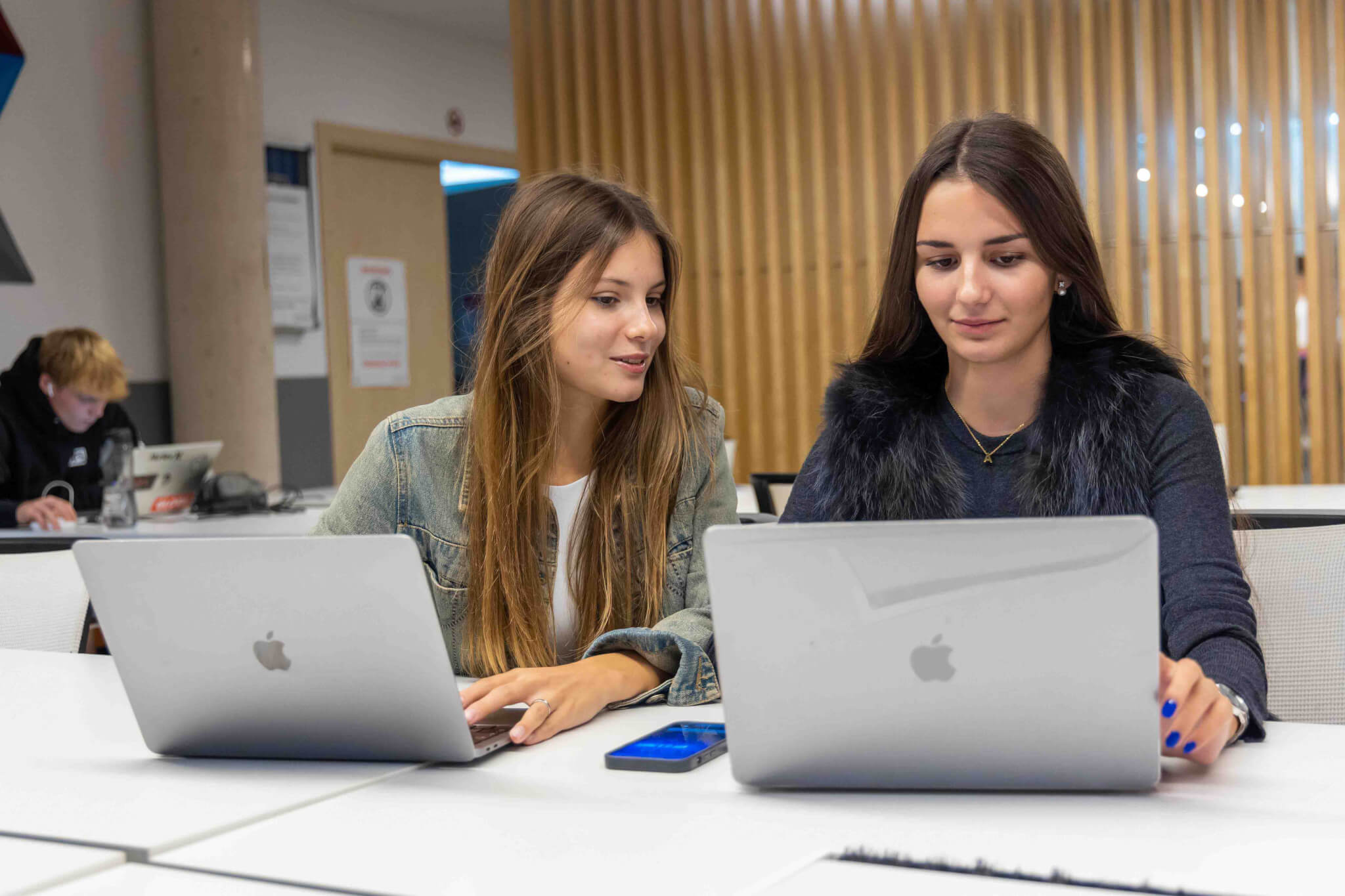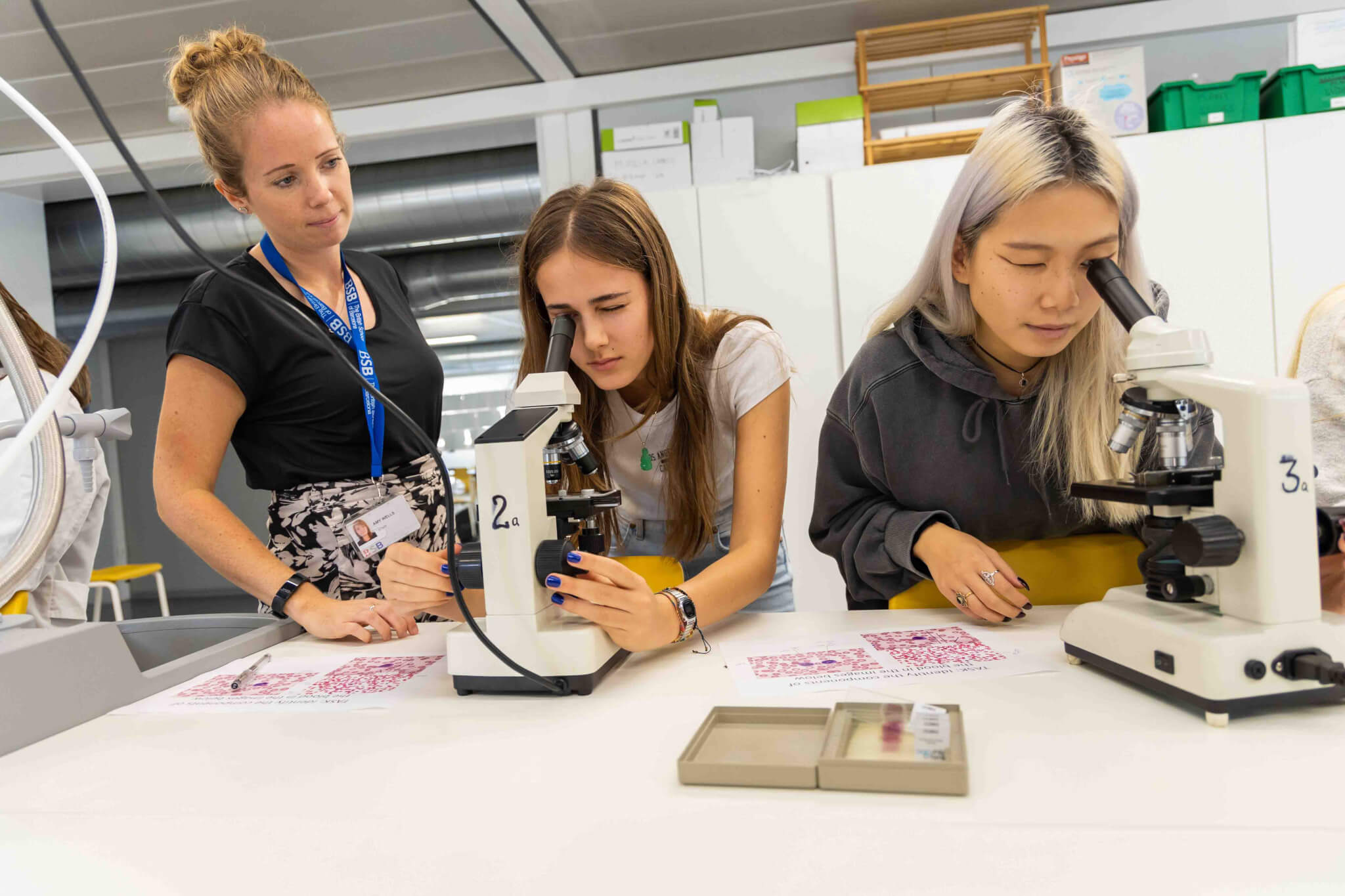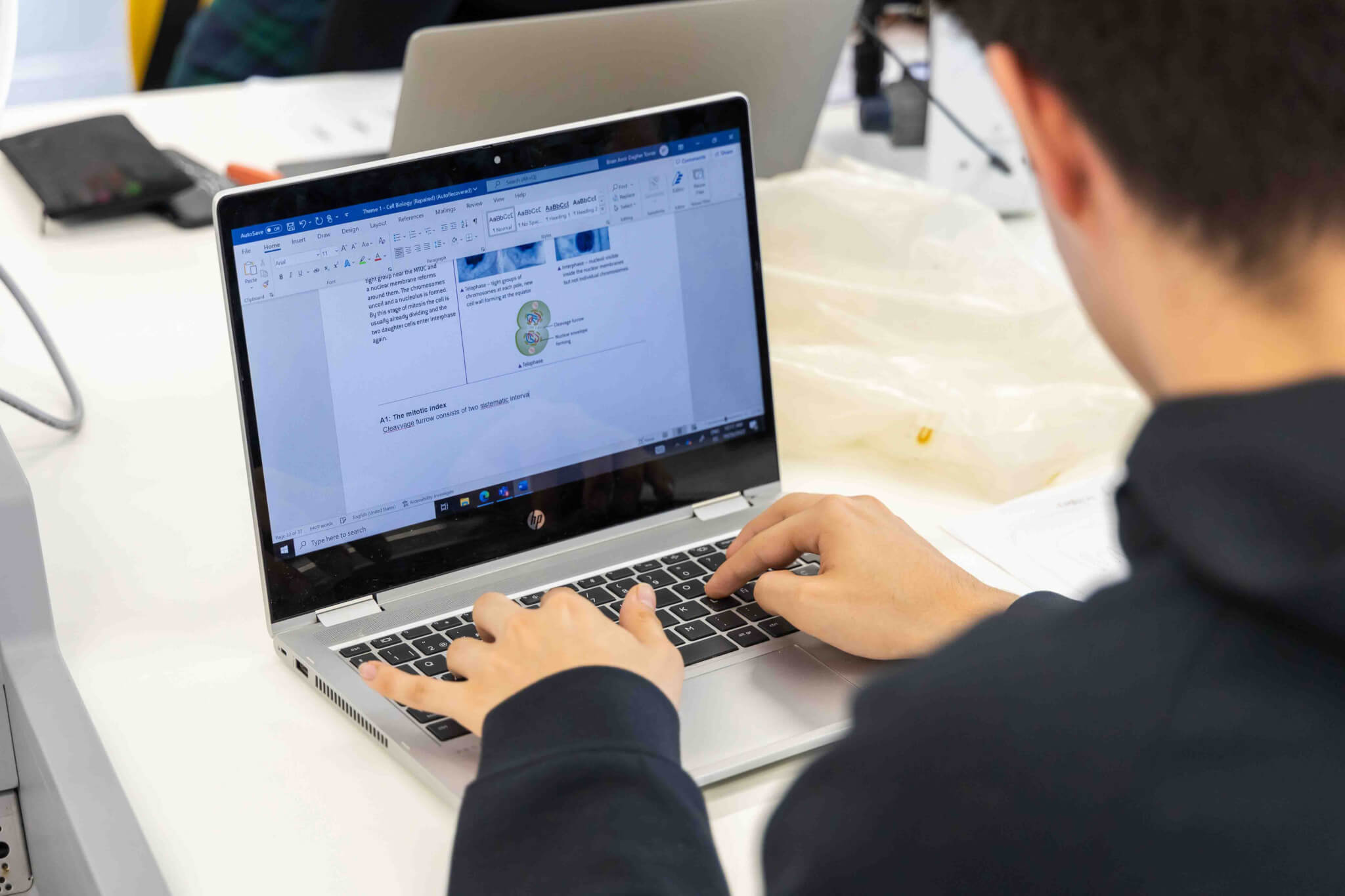What is International Baccalaureate (IB) Diploma Programme (DP)?
The International Baccalaureate® (IB) is a non-for-profit foundation and a global leader in international education — developing inquiring, knowledgeable, confident, and caring young people.
IB programmes empower school-aged students to take ownership in their own learning and help them develop future-ready skills to make a difference and thrive in a world that changes fast.
Today, the IB works with almost 5,500 schools in over 160 countries and offers three academic programmes and one career-related programme to over 1.9 million students worldwide.
Established in 1968, the International Baccalaureate® (IB) Diploma Programme (DP) was the first programme offered by the IB and is taught to students aged 16-19.
Jump down to:
How does IBDP programme work?
The IBDP is an international and enquiry-based programme that takes students onto a journey of becoming academically independent learners. IBDP’s mission is “to develop inquiring, knowledgeable and caring young people who help to create a better and more peaceful world through intercultural understanding and respect.
To this end the organization works with schools, governments, and international organizations to develop challenging programmes of international education and rigorous assessment” (IBO, 2019).
The Diploma Programme (DP) curriculum is made up of six subject groups and the DP core. Through the Diploma Programme (DP) core, students reflect on the nature of knowledge (Theory of Knowledge - TOK), complete independent research (Extended Essay - EE) and undertake a project that often involves community service (Creativity, Activity, Service - CAS).
There are different courses within each subject group which students must choose from, however, in general, all IBDP students will study two languages, one science, one maths and one humanistic subject.
Alternatively, a candidates may substitute a course from the Arts subject group for a course in either the Language and literature, Language acquisition, or Individuals and societies subject groups.
Out of six subjects they choose for their IB Diploma, three of those subjects must be studied at the Higher Level (HL) and three at the Standard Level (SL).
IBDP Results at BSB
With a 100% passing rate, our students taking the International Baccalaureate Diploma at BSB Nexus succeeded in achieving a 34.2 for the average IB points score.
19.4% of our students managed the exceptional achievement of a score of 40 or higher, with one student achieving the maximum 45 marks.
Consequently, all our students have succeeded in securing places at a hugely impressive range of universities across the world, such as University of Warwick, University College London, IE University and Erasmus University in Rotterdam, among others.
100%
success for our IB contingent
19.4%
students scoring 40+ points
34.2
average point score
(30.32 World Average)
1
student achieved the maximum 45 marks
What are the IBDP subjects on offer at BSB?
The British School of Barcelona is an authorised IB World School offering International Baccalaureate® (IB) Diploma Programme (DP) for students aged 16-18/19 at both the BSB Nexus campus in Castelldefels and the BSB City Lucà Campus in Barcelona.
Both campuses are authorised as IB World Schools for the Diploma Programme. IB World Schools share a common philosophy — a commitment to high-quality, challenging, international education — that we believe is important for our students.
All IBDP students at BSB will study two languages, one science, one maths and one humanities subject.
The sixth subject can be the arts. In case students do not wish to choose arts, they have the option of choosing a second science or second humanities subject, which, at the BSB, depends on the blocks.
Three subjects must be studied at Higher Level (HL) and three at standard level (SL), but it is important to note that some subjects such as Spanish ab initio and Environmental systems and societies are not offered at HL. In addition to this, at the BSB, we do not offer Sports Science at HL.
SUBJECT AREAS
From the following subject areas, a student must pick 6 specific courses to study (3 at standard level and 3 at higher level).
The selection needs to be either:
What makes IBDP students unique?
What makes IBDP students unique is the Learner Profile which specifies the attributes needed for a better and more peaceful world:
The focus on Reflection, Balance and Care supports the development of emotional intelligence and resilience needed for a healthy life.
The focus on Inquiry, being Knowledgeable and Thinker acknowledges the importance of critical thinking and invites students to take the learning into their own hands.
Risk taking invites students to move away from their comfort zone and engage in new learning.
Being principled reinforces the concept of Academic Integrity while in school, but it also invites students to always act honestly, responsibly, and ethically throughout their life.
Open-minded and Communication work hand in hand to promote dialog across cultures and nations, creating an invaluable skillset for creators of the better world.
International Baccalaureate Core Elements
The Core focuses on Growth and building resilience as students take on university level studies combining that with creating their own community projects which all resembles to what they will be doing in their future.
Extended Essay (EE)
Extended Essay (EE) is a 4000-word extended piece of academic enquiry which teaches and reinforces skills such as: Academic writing, Referencing and Citing and Academic research.
The EE allows students to explore the topic of their choice in more depth, creating an excellent point for discussion in their personal statements and admissions interviews.
The focus on process and reflection allows students to discover their strengths (and areas for development) as content creators and reinforces the principle of Academic Integrity – thus providing a very strong foundation for any undergraduate studies.
Theory of Knowledge (TOK)
Theory of Knowledge (TOK) explores the nature of knowledge and how we acquire, produce, or communicate the knowledge – essentially opening our minds to all the visible and hidden forces at play during these processes – thus developing/sharpening students’ critical thinking skills – allowing them to become ‘nuanced thinkers’: thinkers who can understand different points of view and can discuss/analyse them in a respectful and open-minded way.
TOK course recognises five Areas of Knowledge, with their distinctive methodologies, scopes, ethical considerations and perspectives: Human Sciences, Natural Sciences, History, Mathematics and Arts.
Together with the AOKs, students can analyze knowledge through the lenses of 12 TOK concepts: Evidence, Certainty, Truth, Interpretation, Power, Justification, Explanation, Objectivity, Perspective, Culture, Values and Responsibility. Finally, two of the optional themes are explored in more detail: Language, Technology, religion, Politics and indigenous societies.
TOK assessment consist of Internally assessed TOK exhibition (33% of the grade, done in Y12) and externally assessed 1600-word TOK Essay (67% of the grade).
Creativity, Activity, Service (CAS)
Creativity, Activity, Service (CAS) is a special part of the Core – as it invites students to move away from academics and get involved in local, national, and international community; by identifying their needs, exploring possible solutions, creating projects, and finally conducting and reflecting. To do this, students often need to go out of their comfort zone and take on new experiences which – in return – allow them to grow as a person.
The set of skills which makes students world-ready
The International Baccalaureate equips students with transferable, world-ready skills and internationally recognized qualification. Approaches to learning and teaching allow IB students to develop transferable and lifelong skills and attributes such as critical thinking, international mindedness, creativity, agency, and resilience.
The DP inspires students to become intellectual, ethical, and culturally aware lifelong learners who study multiple languages, excel academically and have a desire to learn. All DP students engage in high levels of rigor and develop skills to think critically, communicate carefully and learn ethically.
The programmes can give students a competitive edge, helping them to gain admission to universities and careers of their choice, support the smooth transition to university and ultimately perform better when they graduate from university.
Academic Integrity
Academic integrity is a principle in education and a choice to act in a responsible way so others can trust us. It means conducting all aspects of your academic life in a responsible and ethical manner.
The IB expects students to produce genuine and authentic pieces of work, that represent their own abilities. That is, the IB wants to support "content creators", not "content imitators".
Students should give credit where credit is due—so be honest and transparent and recognize how previous work is influencing/supporting your own work.
Academic integrity is an essential aspect of teaching and learning in IB programmes where action is based on inquiry and reflection. All IB community members, including students, should aim to achieve and develop the IB learner profile attributes.
From a young age, IB students are expected to be able to distinguish between what is right and what is wrong. In the context of academic integrity, one of the most important attributes is to be "principled". To this end, all students participating in IB programmes are expected to act honestly, responsibly, and ethically.
At the BSB, we use TurnitIn as a formative tool to teach students the difference between right and wrong in academic writing. TurnitIn’s Similarity check helps students to check their work for plagiarism (intentional and un-intentional) and builds a safe environment in which they develop Citing and Referencing skills prior to further education.
International Mindedness
IB strives to develop students who will build a better world through intercultural understanding and respect, alongside a healthy appetite for learning and excellence. To achieve this, IB programmes encourage students to think consider both local and global context and develop as multilingual students, opening the doors or International Mindedness.
International mindedness is a view of the world in which students, teachers, and parents see themselves connected to the global community and assume a sense of responsibility to its members. It is an awareness of the inter-relatedness of all nations and peoples, and a recognition of the complexity of these relationships. Internationally minded people appreciate and value the diversity of cultures in the world and make an effort to learn more about them.
At BSB, we are a community made of 68 nationalities and vast majority of our students are bilingual and multilingual.







